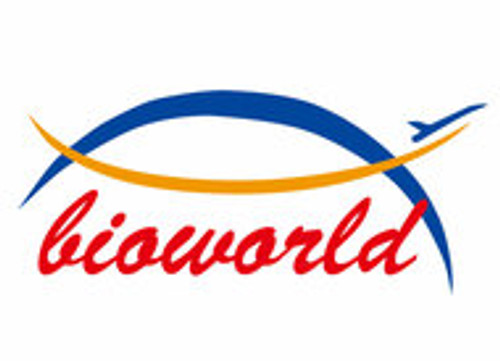Product Description
MDM2 (phospho-S166) polyclonal antibody is available at gentaur for next week delivery
Background: p53 is the most commonly mutated gene in human cancer identified to date. Expression of p53 leads to inhibition of cell growth by preventing progression of cells from G1 to S phase of the cell cycle. Most importantly, p53 functions to cause arrest of cells in the G1 phase of the cell cycle following any exposure of cells to DNA-damaging agents. The MDM2 (murine double minute-2) protein was initially identified as an oncogene in a murine transformation system. MDM2 functions to bind p53 and block p53-mediated transactivation of cotransfected reporter constructs. The MDM2 gene is amplified in a high percentage of human sarcomas that retain wildtype p53 and tumor cells that overexpress MDM2 can tolerate high levels of p53 expression. These findings argue that MDM2 overexpression represents at least one mechanism by which p53 function can be abrogated during tumorigenesis.
Applications: WB IF
Purification&Purity: The antibody was affinity-purified from rabbit antiserum by affinity-chromatography using epitope-specific immunogen and the purity is > 95% (by SDS-PAGE).
Storage&Stability: Store at 4°C short term. Aliquot and store at -20°C long term. Avoid freeze-thaw cycles.
Specificity: p-MDM2 (S166) polyclonal antibody detects endogenous levels of MDM2 protein only when phosphorylated at Ser166
W4BiowMW: ~ 95 kDa
Reactivity: Human,Mouse,Rat
Note: For research use only, not for use in diagnostic procedure.
Immunogen:
Synthetic phosphopeptide derived from human MDM2 around the phosphorylation site of Serine 166.Alternative Name:
E3 ubiquitin-protein ligase Mdm2; Double minute 2 protein; Hdm2; Oncoprotein Mdm2; p53-binding protein Mdm2; MDM2Western blot analysis: Western blot analysis of extracts of 293 cells, using Phospho-MDM2-S166 antibody.
Immunohistochemistry:
Immunofluorescence analysis: Immunofluorescence analysis of U2OS cells, using MDM2 (phospho-S166) polyclonal antibody
Host: Rabbit
Swiss-Prot: Q00987
"








